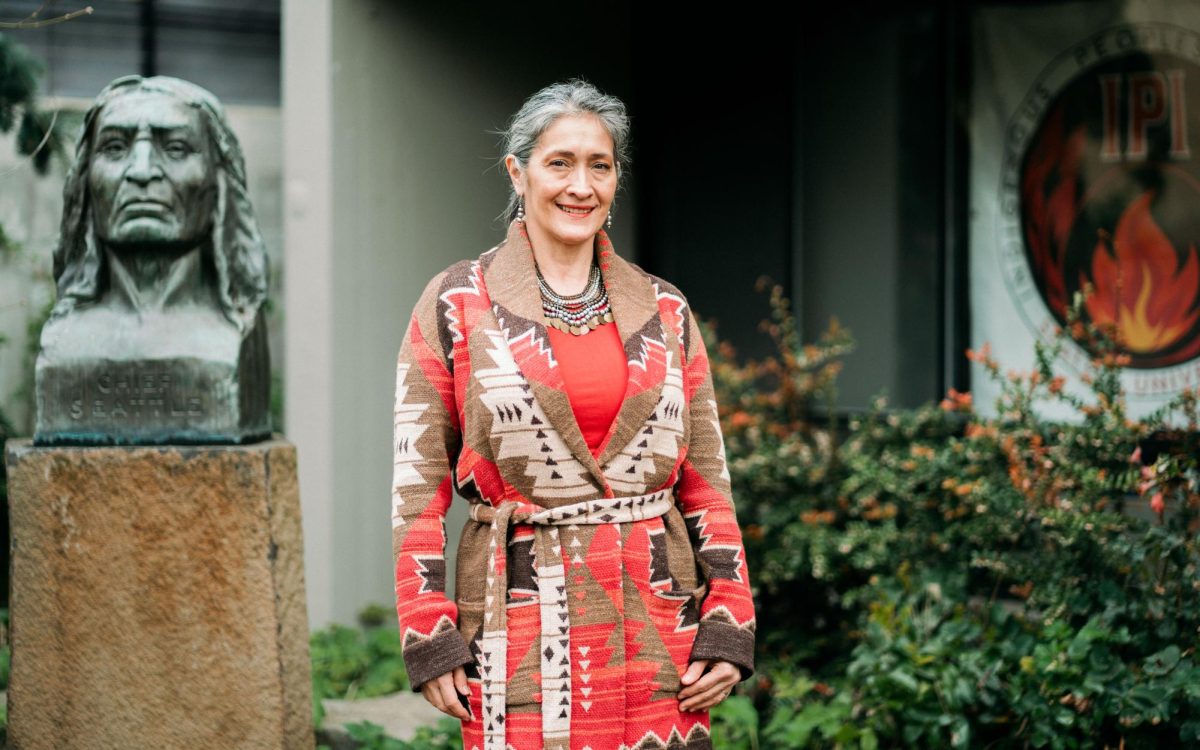As Seattle University film students surge toward graduation, the local landscape they are entering is more conducive than ever to practicing their crafts and contributing to a larger film culture.
The Washington State Production Incentive program is up for another vote in Olympia, and hopes to support that mission with statewide legislation.
The legislation proposes to secure $3.5 million in tax benefits for qualifying productions who chose Washington as a location to film, while also hiring local film workers and contractors. Each project would be able to receive hundreds of thousands of dollars in direct compensation for their contribution to our local film industry.
Amy Lillard is the executive director of Washington Filmworks, the non-profit which manages the state’s incentive program. Through her work, state tax benefits are distributed to lure productions to Washington when filming their projects. During her 10 years working with the incentive, she has seen growth in Seattle’s film presence and its recognition on the national level.
“In the time that we’ve had the incentive program, we have been able to support 118 projects,” Lillard said. She thinks the incentive has done a great job of partnering with some of the more nationally recognized filmmakers from the Seattle area, such as Lynn Shelton, Megan Griffiths, Lacey Leavitt and Mel Eslyn.
“Those are all folks who the incentive has really invested in their projects early in their careers that have helped launch them onto a national scene, so we take great pride in that,” Lillard said.
While many people think “opportunities for the state” refer to Seattle alone, its reach really does go statewide. This means a wide and growing industry for film graduates to enter.
“We had some really intrepid filmmakers who were both working in and outside of the incentive program, that were taking advantage of these incentives and ultimately were able to attract more incentivized projects into the state,” said Daniel Thornton, an adjunct professor in film studies at Seattle U.
Thornton teaches production classes and screenwriting, and has been in Seattle as a filmmaker since 2000. He has also worked on the East Coast, which gives him the ability to measure how Washington’s film incentive program is stacking up. He believes companies like North By Northwest, which work large productions and benefit from the state’s incentive, are ultimately good for growth.
“They actually really pushed for the film incentive, and were able to take advantage of it as an actual production company based in Washington State,” Thornton said. “They were initially pretty successful getting low budget features to come and film in the state under the incentive program, and were able to make Spokane a small hub of filmmaking.”
Z Nation, an ongoing comedy series filming in eastern Washington under the incentive program, is partnering with North By Northwest on the project. It’s an example of facilitating jobs and future opportunities for aspiring film grads.
John Trafton, a film studies professor at Seattle U, thinks Seattle sits at a unique mid-point between big city glam and small town isolation. While it’s not Hollywood, he believes our region does have the size and access to place itself uniquely in an evolving industry.
“Seattle kind of exists somewhere in between that,” Trafton said. “It’s a metropolitan city, with a greater metropolitan area, and comes with all the resources that affords.”
Whether film grads are looking for big glitz or smaller local glam, the film industry is diversifying, not converging.
“There have always been a list of marginal or minor cinemas, even if you were to go back to the 1930s, you would find that true,” Trafton said. “Today, that is certainly more pronounced. In terms of students looking to get a foot in the industry, it has become harder and more difficult, but in terms of carving your own way, or exploring other forms of media, or operating as one’s own independent voice for cinema, that is still very robust and exciting.”
All sorts of exciting developments are also looking to push the industry forward and recent grads will soon be poised to apply all they have learned from a Seattle U education.
“Not only are there very, very exciting experiments going on in filmmaking,” Trafton said, “But also in film exposition.”
“The traditional world of film, the traditional market at this point in time is not going away anytime soon,” Trafton said. “It’s still very much here in the sense of a professional organization.”
Les may be reached at
[email protected]












